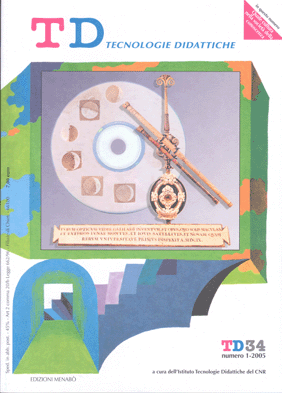Work, school and people in the knowledge society
Main Article Content
Abstract
Article Details
Section
Authors who publish with this journal agree to the following terms:
- Authors retain copyright and grant the journal right of first publication with the work simultaneously licensed under a Creative Commons CC BY 4.0 Attribution 4.0 International License.
- Authors are able to enter into separate, additional contractual arrangements for the non-exclusive distribution of the journal's published version of the work (e.g., post it to an institutional repository or publish it in a book), with an acknowledgement of its initial publication in this journal.
- Authors are permitted and encouraged to post their work online (e.g., in institutional repositories or on their website) prior to and during the submission process, as it can lead to productive exchanges, as well as earlier and greater citation of published work (See The Effect of Open Access)
References
Bauman Z. (1999), La società dell’incertezza, Il Mulino, Bologna.
Bottani B. (2004), Educazione e Scuola, Supplemento III dell’ Enciclopedia del Novecento dell’Istituto dell’Enciclopedia Italiana, Roma.
Davenport T.H., Beck J.C. (2001), The attention economy: Understanding the new currency of business, Harvard Business School, Cambridge.
Davis S., Meyer C. (1999), Blur: The Speed of Change in the Connected Economy, Warner, New York.
Florida R. (2002), The rise of creative class, Basic Books, New York.
Gardner D. P. (1983), A nation at risk: the imperative for educational reform, National Commission on Excellence in Education, Washington D.C.
Himanen P. (2002), The hacker ethic and the spirit of information age, Random, New York.
Malone T. W. (2004), The future of work: how the new order of business will shape your organization, your management style and your life, Harvard Business School Publishing, Cambridge, MA.
NCES (National Center for Education Statistics) (2001), Homeschooling in the United States: 1999, Institute of Education Sciences, U.S. Dept. of Education, Washington D.C.
National Research Council - Committee on Techniques for the Enhancement of Human Performance (1999), The changing nature of work: Implications for occupational analysis, National Academy of Sciences, Washington D.C.
OECD (2001), Connaissance et compétences: des atouts pour la vie, Premiers résultats de PISA 2000, Paris.
Rifkin J. (1995), The end of work: the decline of the global labour force and the dawn of post-market era, Putnam, New York.
Sennett R. (1998), The corrosion of character: the personal consequences of work in the new capitalism, Norton & Company, New York.
Zuboff S. (1988), In the age of smart machine: the future of work and power, Basic Books, New York.

